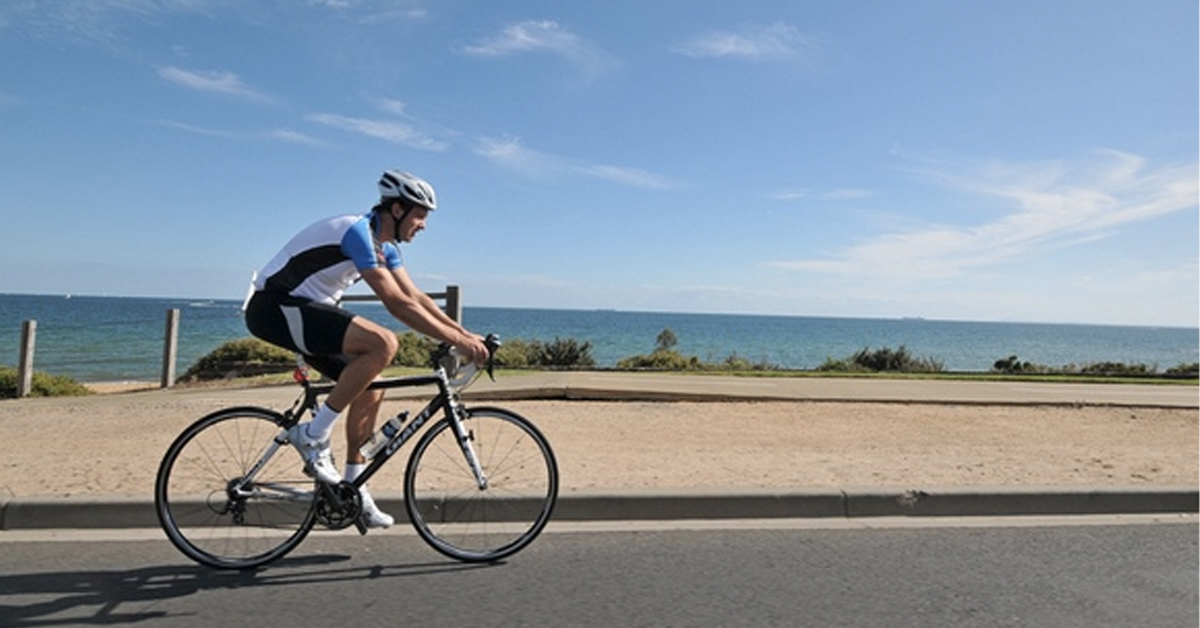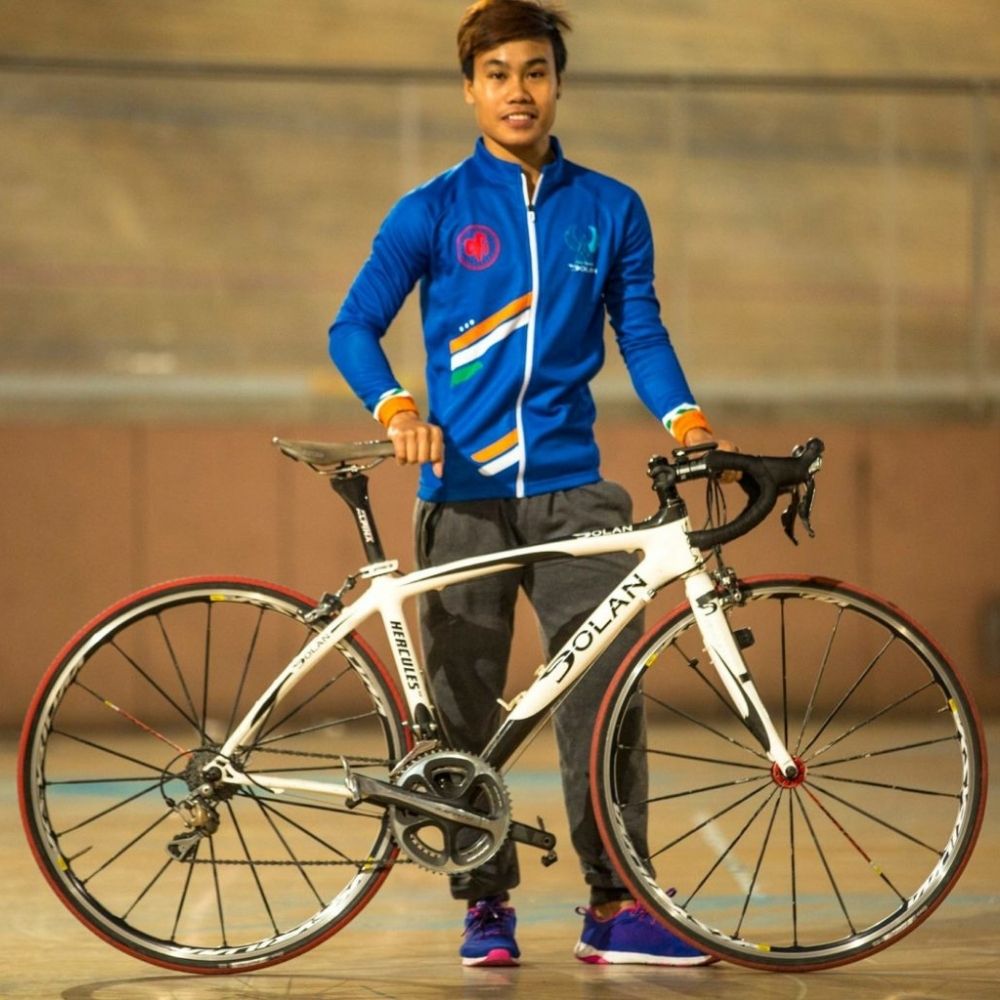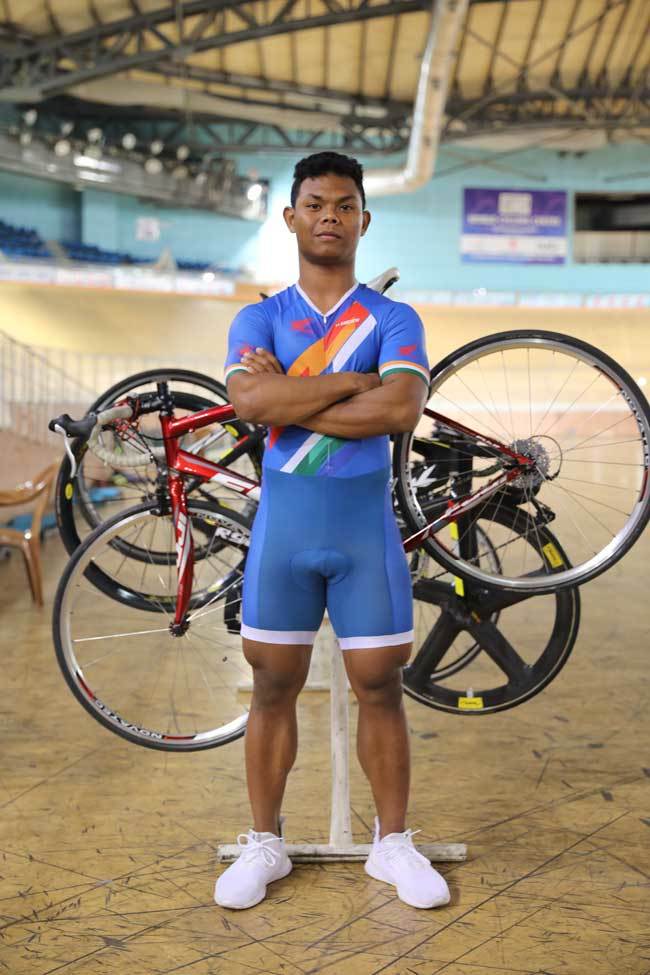Cycling
Rich culture yet poor support - How Andaman & Nicobar Islands churn out cycling champions?

Andaman and Nicobar Islands always top the lists of states in India when arranged according to the English alphabets. Geographically or politically, however, it seizes to exist even in the farthest quarters of an Indian's imagination, for whom, the country's topography hits the dead-end at the southern tip of Kanyakumari. The archipelago is located closer to Thailand and Indonesia than to the Indian mainland - 1,400 kilometres away in Indian Ocean. By sea, it takes a minimum of three days from Kolkata, Chennai or Visakhapatnam to reach the capital, Port Blair.
The remoteness and inconvenience to commute made the island the most desired place for the British colonisers in India to set up a jail for the nation's political prisoners. Dreaded as 'Kalapani', the penal colony at the island was infamous for how the 'convicts' were tortured and starved. Even for a long time after the country's independence, it remained in news for the outbreak of diseases, fear, and isolation. Narratives slowly started changing when the place was identified as a tourism paradise with exotic white beaches. The island that survived the catastrophe of the tragic Tsunami in 2004, holds one of India's most enduring yet underrated narratives of sporting success.
The modern legacy of Andaman & Nicobar cyclists
The modern India that made vast progress with Internet of Things was introduced to a sporting hero from Andaman & Nicobar Islands in 2015. A 20-year-old girl suddenly rose to fame when she became the first Indian female cyclist to be ranked fourth in the world. Deborah Herold's name was etched with glory in the World Elite Women Ranking issued by cycling world body UCI for the 500m time trial event. At the 2013 Asian Championships, held in Delhi, she earlier became the first Indian woman to win a medal in an individual event in the 200m junior sprint. Beyond Herald's rankings the technicalities of track cycling, what stood out was her equally inspirational and dramatic journey.
 Deborah Herold
Deborah Herold
Back in 2004, Herold was just nine years old and was at home on the day the Tsunami had struck. She had run out into an open field with her mother before they were separated by waves of seawater. Miraculously, she spent five days clinging on to a tree, crying all the while, before she was rescued by a search party. She thought she would never see her family again. From Kakana village in Car Nicobar, she was spotted by Subhendu Sengupta in a 2009 camp organised by the Sports Authority of India (SAI) in Port Blair.
Sengupta arrived as a cycling coach in Andaman Nicobar Islands back in 1999. Initially a member at the State Sports Council, Subhendu was transferred as a coach in SAI and boasts of bringing a cycling revolution in the state where he has worked for over 21 years. "Since Deborah's success, I have been the coach for almost all the cycling stalwarts of Andaman & Nicobar Islands who have won over hundreds of medals in the last 14 years," says Sengupta, who is also the local coach of another wonderboy of Indian cycling, Esow Alben.
Alben holds many first to his name. He is the first Indian to win a medal at 2018 UCI Junior Track Cycling World Championships when he won Silver at Keirin event in Aigle, Switzerland. Esow alongside his teammates Ronaldo Singh Laitonjam and Rojit Singh Yanglem won Gold in 2019 UCI Junior Track Cycling World Championships at Team Sprint event in Frankfurt (Oder), Germany.
Also read: India’s 10 most successful cyclists at International level
The love for cycling on the island
Cycling has always been popular among the Nicobarese. While Deborah and Esow were the faces of the state's resurging cycling glory post Tsunami, the commitment towards the sports probably took a serious shape long back in 1985. Three years after India hosted the Asian Games in 1982, SAI launched an ambitious programme called the Special Area Games (SAG) with the intention to scout natural talent for modern competitive sports and games from inaccessible tribal, rural, and coastal areas of the country.
Under this scheme led by former-IAS officer B.V.P. Rao, officials travelled to remote regions to scout talent and bring them to the Jawaharlal Nehru Stadium in Delhi for a 90-day assessment by coaches and sports scientists. Those who were selected got enrolled in the full-time residential training programme, with the government taking care of all their needs, including schooling. The SAG worked wonders for the island. In 1989, a cyclist. named Daisy from Car Nicobar won a bronze medal in the pursuit event at the Asian Cycling Championship. She also participated in the 1990 Asian Games in Beijing. Another cyclist, Basil, who died of cancer in 1995, had represented India at the Asian level. Before the Tsunami, a road race in his memory—the Basil Memorial—was organised annually in Car Nicobar.
"There is a popular story of how the cycling culture developed in present Indian Union Territory. John Richardson was a Nicobarese bishop who was an Anglican priest. Widely considered the spiritual leader of the island, the sports enthusiast bishop promoted cycling instead of public vehicles. His wisdom was popularly accepted and kids would ride their bicycles to schools even as far as 10-15 kilometres. This trend followed. Though buses and other vehicles started functioning, the cycling culture is still running strong among the dwellers," says Sengupta.
 In August 2018, Esow Alben provided that ‘massive moment’ winning India’s first-ever World Championship medal
In August 2018, Esow Alben provided that ‘massive moment’ winning India’s first-ever World Championship medal
He adds, "Besides, People on the Island are born with Mongoloid features. Their calf muscles are genetically stronger and better than the rest of the Indians. They have been climbing rocks, running around, playing football with coconut shells for ages. All these, naturally have made their legs stronger. The development is at an advanced stage than the rest."
Sengupta won the gold medal in the 1984 Cycling Nationals. Thereafter, he took part in many other national tournaments. After he completed his studies at the National Institute of Sports in Patiala, he had moved to Kolkata. In 1999, Sengupta was sent to the Andamans as a ‘punishment posting’ for asking too many questions and ruffling too many feathers in Kolkata and he has been in the Andamans for over two decades now.
Sengupta, who is currently the coach of State Sports Council (SSC) in Port Blair would go to the schools in the remotest corners of the island for talent scouting and bring the brightest of the cyclists to the capitals. This is how he found Deborah Herald. And in 2014, he started an assessment camp where Alben was discovered.
Also read: Bullied for Indian origin, Alexi Grewal is USA’s only Olympic gold medallist in men’s road cycling
Cycling thrives despite poor facilities
Andamans remains an epitome of how diverse our country is and how deep are the pockets that can produce champions. But, like many other sports in India, beneath the glittery polish of success lies the inequality that refuses to change.
"The government haven't supported us. Whatever cycles we use are our own. Despite our successes, we function with basic equipment. Cycles and equipment were last bought probably in 2005, most of which has not been upgraded since. At Andaman, we create a strong foundation in cycling, and then our cyclists are taken to the camp in Delhi from where they keep on winning medals at higher levels," laments Sengupta.
Delays are a regular occurrence in Andaman. Being dispersed from the mainland, even with poor telecommunication connections, coordinating with Delhi — which is where the Director was often based — is difficult. The island, which witnesses rainfall for a major chunk of the year cannot afford to compete in road cycling and hence has made inroads in track cycling from the beginning. The salty sea breeze still corrodes the bicycles easily and Spare parts are very hard to come by. Bicycle companies are wary of the logistical challenges of shipping to the islands.
 Subhendu Sengupta
Subhendu Sengupta
Such state of affairs has been normalized. Adding to the woe, Sengupta hasn't received his salary as a coach for the last five months. Despite multiple requests to authorities, it has gone to deaf ears. Back in 2017, Alben had extended financial help of Rs 20,000 to his coach during his visit to the Islands after he came to know that the tenure of Sengupta of State Sports Council was not been extended.
"Like me, many others haven't received their due salaries. We have tried writing letters to the highest authorities but somehow, it never reached them. Often we have also been threatened by the local administrators to not open our mouths to the media about our problems. We had put out job postings for new coaches and nobody agreed to come to Andamans for just a meagre salary. It is me, who stayed," comments Sengupta.
In 2018, the SAI Special Area Games Centre in Port Blair came into the news after it was rocked by sexual molestation allegations. Since then, parents and children have stopped enrolling in the hostel. This has spiralled into the SSC’s own hostellers. The SSC hostel programme is also more or less abandoned.
Despite all the setbacks, the SSC under the aegis of Sengupta has thrived even during the lockdown imposed due to COVID-19. It is the passion of cyclists that have kept them running. "We trained six cyclists within the closed doors of the SSC in on velodrome during the coronavirus outbreak. I always believed in quality and not quantity. So I chose the best of the cyclists to train. While three of them appeared for their 10th class examination, three will appear for their 12th board exams. Bt they are so passionate about cycling that they said, they are willing to drop out if they get a good opportunity," Sengupta shares.
Cycling still remains a 'bad passion' for Sengupta and his assistants in the Islands who continue to weave their hopes around the new breed of cyclists on the island. In 2020, a cycling competition was held for the first time in three editions of Khelo India Games, and Andaman and Nicobar Islands’ cyclists Celestina and David Beckham completed their respective individual double crowns. They took home eight medals, including five gold. With nobody to hear them, Celestina and Beckham continue to emulate Herold and Esow and eventually, someday might outshine them.
Also read: Rani Rampal’s Shahabad – The nursery of women’s hockey in India






